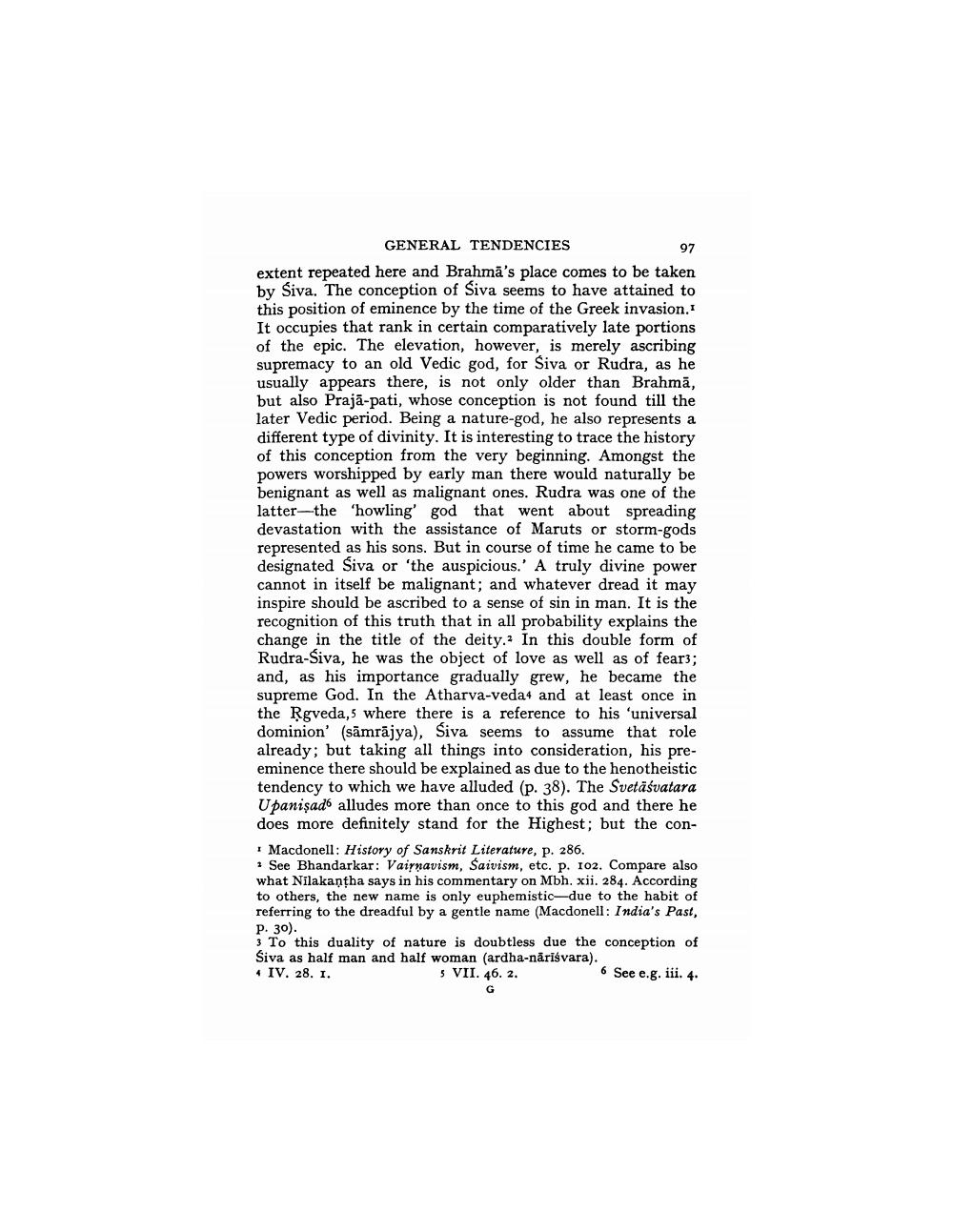________________
GENERAL TENDENCIES
97
extent repeated here and Brahma's place comes to be taken by Siva. The conception of Siva seems to have attained to this position of eminence by the time of the Greek invasion.1 It occupies that rank in certain comparatively late portions of the epic. The elevation, however, is merely ascribing supremacy to an old Vedic god, for Šiva or Rudra, as he usually appears there, is not only older than Brahmā, but also Praja-pati, whose conception is not found till the later Vedic period. Being a nature-god, he also represents a different type of divinity. It is interesting to trace the history of this conception from the very beginning. Amongst the powers worshipped by early man there would naturally be benignant as well as malignant ones. Rudra was one of the latter the 'howling' god that went about spreading devastation with the assistance of Maruts or storm-gods represented as his sons. But in course of time he came to be designated Siva or 'the auspicious.' A truly divine power cannot in itself be malignant; and whatever dread it may inspire should be ascribed to a sense of sin in man. It is the recognition of this truth that in all probability explains the change in the title of the deity. In this double form of Rudra-Siva, he was the object of love as well as of fear3; and, as his importance gradually grew, he became the supreme God. In the Atharva-veda4 and at least once in the Rgveda,5 where there is a reference to his 'universal dominion' (samrajya), Śiva seems to assume that role already; but taking all things into consideration, his preeminence there should be explained as due to the henotheistic tendency to which we have alluded (p. 38). The Svetäśvatara Upanisado alludes more than once to this god and there he does more definitely stand for the Highest; but the con
Macdonell: History of Sanskrit Literature, p. 286.
See Bhandarkar: Vaiṛnavism, Saivism, etc. p. 102. Compare also what Nilakaṇṭha says in his commentary on Mbh. xii. 284. According to others, the new name is only euphemistic-due to the habit of referring to the dreadful by a gentle name (Macdonell: India's Past, P. 30).
3 To this duality of nature is doubtless due the conception of Siva as half man and half woman (ardha-näriśvara). 4 IV. 28. I. 6 See e.g. iii. 4.
5 VII. 46. 2.
G




